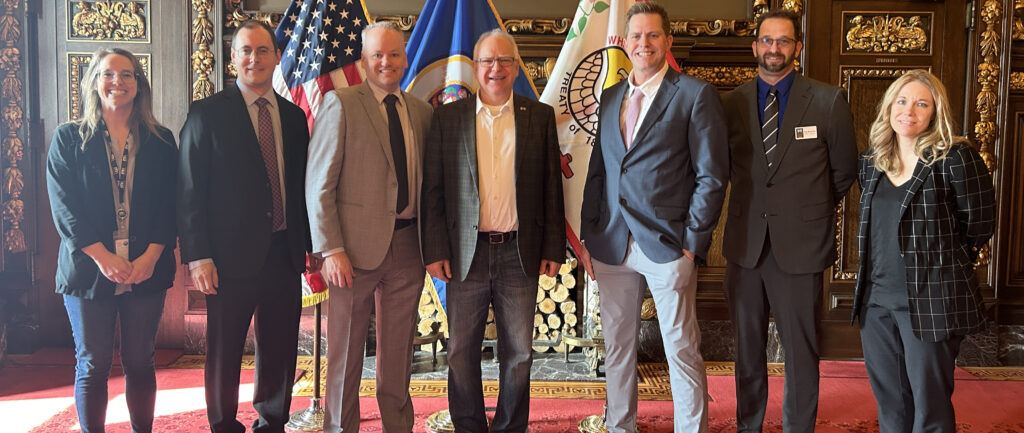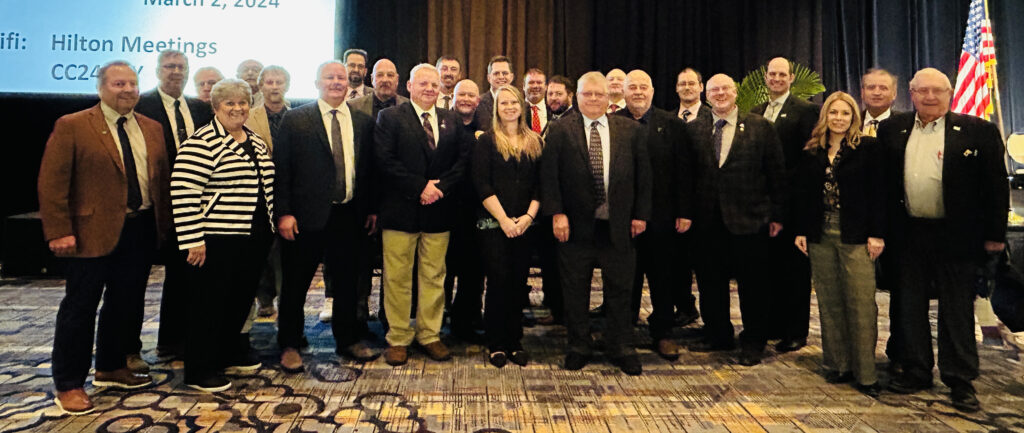The Governor’s Council on Biofuels, established earlier this year, delivered to Gov. Tim Walz its consensus report on the steps needed to grow Minnesota’s biofuels industry and put the state back on track to meet ambitious renewable energy goals.
Walz charged the 15-member council, which includes Minnesota Soybean Growers Association Treasurer Bob Worth, to recommend policies to accelerate achievement of Minnesota’s biofuels and greenhouse gas reduction goals. The group worked over the past nine months (due to COVID-19, only one meeting was held in-person) to find ways to help farmers, rural communities, the natural environment, and economically disadvantaged populations increase the use of biofuels.
“I am a longtime supporter of biofuels because they are good for both our environment and our economy. A strong biofuels industry in Minnesota not only provides good-paying jobs and helps our economy grow, but it also aids in reducing harmful greenhouse gases,” Gov. Walz said. “I am grateful for the work of each member of the Council, and I look forward to reviewing the full set of recommendations.”
The Council’s recommendations include accelerating the state’s move toward 15 percent ethanol content in gasoline; adopting a Low Carbon Fuel Standard; increasing biofuels use in the state fleet by encouraging use of 100 percent renewable diesel and biodiesel; increasing public understanding and marketing of biofuels; and developing advanced biofuels.
“Agriculture has a big role to play in helping our state achieve its renewable energy goals,” Minnesota Department Agriculture Commissioner Thom Petersen said. “I want to thank all the council members for helping us figure out how to move Minnesota toward those goals in a way that will be good for producers and consumers.”
Minnesota adopted statutory goals in the 2007 Next Generation Energy Act to replace 30 percent of the state’s petroleum use with biofuels by 2025. But is not on track to meet those goals, due to a combination of low market prices and changes in federal policy.
”Gov. Walz, Lt. Gov. Peggy Flanagan and Commissioner Petersen convened us to ensure that Minnesota homegrown biofuels play a vital role in Minnesota’s response to the climate challenge,” said Mike Bull, director of policy and external affairs at the Center for Energy and Environment, and a member of the council. “I’m thankful for their leadership and grateful to my fellow council members for our good work together.”
The biofuels industry provides important markets for agricultural commodities and generates an estimated $6.7 billion in annual economic impact. Biodiesel alone contributes $1.7 billion toward Minnesota’s economy, and supports nearly 5,400 jobs and adds up to a dollar to a bushel of soybeans, increasing demand for soybeans by 13 percent. Though not a formal recommendation, the group discussed a long-term goal of increasing Minnesota’s minimum blending requirement to B30 (30 percent biodiesel).
“We appreciate the opportunity to have a dialogue with Gov. Walz and stakeholders about the importance of biodiesel to Minnesota’s economy,” said Worth, who was one of four farmers on the council. “Minnesota has long been a leader in biodiesel, and we’re optimistic we’ll continue to be at the forefront of the nation’s use of renewable fuels.”
Members of the council represented the biofuels industry, agricultural and farm groups, the service station industry, the wood products industry, and energy and environmental organizations. Mike Youngberg, executive director of the Minnesota Biodiesel Council and Minnesota Soybean’s senior director of product development & commercialization, served as a member of the Infrastructure Committee.
“We’re certainly glad our recommendations, like having more biodiesel used in the state’s fleet, came through in the formal report,” Youngerberg said. “We now look forward to the biofuels policy the governor’s administration is going to outline for 20201 and beyond.”
MDA facilitated the Council’s work. Find more resources about the Council’s goals and view the report on the MDA’s website.




